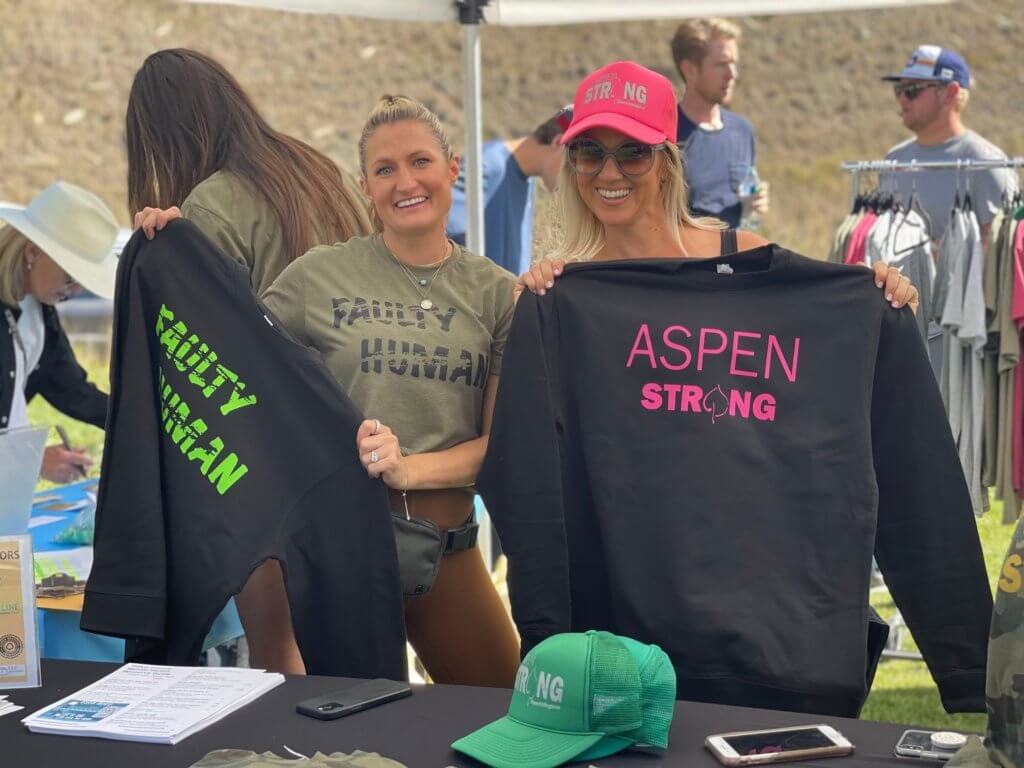Aspen Strong is expanding outreach and support programs to help people get the care they need
“Mental health is health.”
Those were the closing words from Aspen Strong Executive Director Angilina Taylor at the end of this year’s presentation of The Longevity Project, a vibrant online panel discussion about mental health and the keys to living a healthy and fulfilling life in the Roaring Fork Valley.
Aspen Valley Hospital and Aspen Strong have been collaborating throughout the year to present virtual mental health discussions for the community that seek to destigmatize the topic and empower people to take care of their mental health. The events have brought together experts in the community (and beyond) to share experiences, offer guidance and provide an open forum to ask important questions.
So far, they have presented three virtual panel discussions, with a fourth planned for later this year.
- “Failure to Launch” in January put pandemic fatigue in the spotlight and focused on giving people tools to cope with a New Year that didn’t feel like a New Year.
- “The Body’s Response to the Pandemic” in May examined the effects of stress related to COVID-19 on our physical and mental health.
- “The Longevity Project” at the end of September, in collaboration with The Aspen Times, featured a wide-ranging discussion on mental health challenges and resources in the Roaring Fork Valley, some but not all related to the pandemic.
“One of the silver linings of COVID-19 is that it really catapulted the conversation about mental health forward — many years forward,” Taylor says. “It’s unfortunate that it took a pandemic, but it’s important that people learn to recognize a mental health situation and feel safe reaching out for help.”
Aspen Strong is a mental health advocacy nonprofit that is breaking stigmas through prevention, resources, education, policy change and community connection. Its biggest goal is to normalize the conversation around mental health. It has a complementary relationship with Aspen Hope Center, Pathfinders, Mountain Family Health, Mind Springs Health and therapists in the valley, each of whom play a different role in our mental health services ecosystem.
“I like to think of Aspen Strong as a gateway to mental health,” Taylor says. “If people are starting to think about their mental health and are looking for resources, we can help them tap in.”

The organization was founded in 2014, largely in response to the high rate of suicide in the area, starting out as a hike to raise money for the Mental Health Fund, which helps locals who need assistance in paying for therapy. Taylor has been involved with Aspen Strong for years and took on the role of executive director 11 months ago.
“The more we are out in the community and the more we are talking about mental health, the better. It’s so stigmatized,” she says.
One of the ways Aspen Strong helps community members overcome that stigma is to meet with people where they are, whether that’s at work or at school. Aspen Strong representatives present before employees and students, providing them with information about the mental health support and tools that are available.
The collaboration with the Hospital was built on a workplace partnership, where Aspen Strong holds sessions with employees to discuss mental health issues and the resources that are available. “In coming together, we wanted to support the Hospital internally, and we both wanted to support the community with our resources and connections,” Taylor explains.
“Mental health is just as important as your physical health,” says Aspen Valley Hospital Chief Marketing Officer Jennifer Slaughter. “That’s why we fully support Aspen Strong in their tireless work reaching out to the community and through the speaker series we are doing together. Both organizations are committed to keeping our community healthy and to providing help where it is needed most.”
Aspen Strong has other important initiatives underway to support mental health access in the Roaring Fork Valley in 2022.
The Insurance Initiative works to increase the number of therapists who take insurance. They are modeling their effort after a successful program in Summit County that increased the number of therapists accepting insurance from three to 46.
The Teen Initiative was developed in response to the rise in teen depression during the pandemic. Aspen Strong is developing a workshop series that provides information and conversation about mental health while engaging in an activity such as fly fishing, jewelry making, fashion design, yoga and others. A local tradesperson hosts the workshops while demonstrating how their craft is supportive for their own mental health. The idea is to provide youth with tools to add to their emotional toolkit so they are able to manage their own mental wellness.
“We’re all going to have a different emotional toolkit, so having five tools that you can tap into when you’re in a difficult spot to calm and center yourself is invaluable,” Taylor says.
Aspen Strong is also working to create an in-person health coaching program with a mental health angle. Coaches would help people think about their mental health goals. If a person needs a therapist, their coach can see if their insurance covers therapy, assist them with the Mental Health Fund, or help them find a therapist.
Aspen Strong’s website, aspenstrong.org, is designed to give people resources that help them assess their needs and connect with the right treatment and support.
They include:
- A therapist listing of 152 professionals serving Aspen to Parachute either in person or virtually. It is organized so people can find the right type of therapist in their area and determine costs and what kind of payments they accept.
- 14 mental health screenings to help understand how people are feeling and what kind of help is appropriate.
- A crisis hotline page with phone numbers people can call for immediate assistance.
- A “Get Help” menu link that includes a long list of additional resources.
The Roaring Fork Valley faces mental health challenges that have been apparent for decades, including a high suicide rate and alcohol and substance abuse. Depression and anxiety have become more prevalent during the pandemic. Aspen Strong’s work in collaboration with Aspen Valley Hospital, other mental health organizations, therapists, employers and schools is making it possible for people to find the resources and support they need.

Taylor says it’s also important for family and friends to support each other during the pandemic and beyond. “I think one of the biggest things you can do for yourself is to let someone know you are not doing OK, and if possible, have someone with whom you can check in, when you need to.”
If You Need Immediate Help
If you’re in crisis or having suicidal thoughts, it is important to get help immediately by making a phone call. There are local and national hotlines that operate 24 hours a day.
- Aspen Hope Center Hotline: 970-925-5858
- Eagle River Valley Hope Center Hotline: 970-306-4673
- Garfield County Hotline: 970-945-3728
- Mind Springs Health Crisis Center: 877-519-7505
For a full listing of local and national helplines, go to aspenstrong.org and click on the “Get Help NOW” button.

